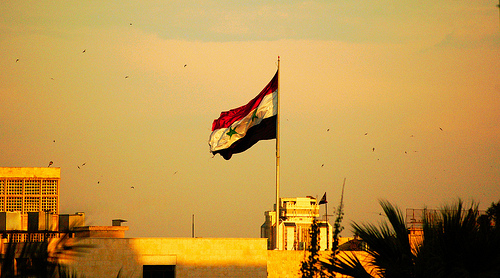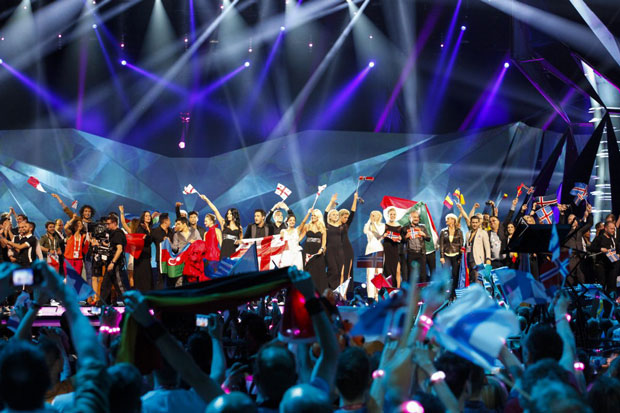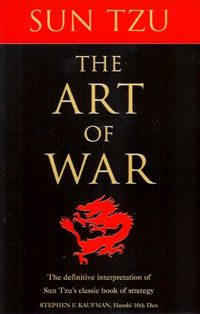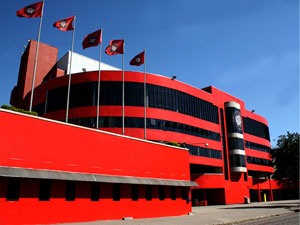17 May 2013 | Middle East and North Africa
 Five members of the Syrian Centre for Media and Freedom of Expression (SCM) are scheduled to appear before the country’s Anti-Terrorism court in Damascus on 19 May. Three of the activists, SCM’s head Mazen Darwish, blogger Hussein Gharir, and activist Hani Zaitani have been held in prison since February 2012, when Syrian security forces attacked and raided the organisation’s offices. Abdel Rahman Hamada and Mansour Omari were conditionally released earlier this year. Syria’s Air Force Intelligence has accused the five activists of “publicising terrorist acts”, under the country’s Anti-Terrorism law.
Five members of the Syrian Centre for Media and Freedom of Expression (SCM) are scheduled to appear before the country’s Anti-Terrorism court in Damascus on 19 May. Three of the activists, SCM’s head Mazen Darwish, blogger Hussein Gharir, and activist Hani Zaitani have been held in prison since February 2012, when Syrian security forces attacked and raided the organisation’s offices. Abdel Rahman Hamada and Mansour Omari were conditionally released earlier this year. Syria’s Air Force Intelligence has accused the five activists of “publicising terrorist acts”, under the country’s Anti-Terrorism law.
A group of 19 international organisations today called for the release of Zaitani, Gharir, and Darwish, and for the charges against all five to be dropped. If convicted, they face up to 15 years in prison. According to a statement released today, Syria’s Justice Minister earlier this month promised the release of SCM’s three jailed members — in addition to 69 other jailed activists.
SCM member Maha Assabalani, who was avoided being imprisoned during the raid, wrote about her colleagues for Index last year. She said that her colleagues are in prison for fighting for freedom of expression — and that they “risked their life fighting for real change.” She also said that Darwish regularly told the organisation’s staff that “there are not enough prisons for the free word.”
17 May 2013 | Azerbaijan News, Europe and Central Asia, News

The Eurovision Song Contest gives a platform to some of Europe’s outliers on free expression. Photo: Sander Hesterman (EBU) / Eurovision 2013
Europe will once again be swept away by a sparkly hurricane of techno beats and pompous ballads, kitschy and/or traditional costumes, wind machines, pyrotechnics, heavily accented English, awkward host banter and nul points. Yes, Eurovision takes our breath away in more ways than one.
While first and foremost a showbiz spectacle, if you look beneath the layer of sequins you’ll soon discover the political tinge to the continent’s premier singing competition. From the start in 1956, it was designed as fun way of testing out new broadcasting technology. Those partial to the occasional conspiracy theory would have you believe this was also a convenient cover for pan-European satellite testing during the Cold War, which is why NATO members Turkey and Israel were invited to the party.
With the lifting of the Iron Curtain and the inclusion of the Eastern Bloc in 1990, much was said about the healing, unifying power of the contest. Since then, even more has been said about the tendency of the late arrivals to share their points amongst themselves. The UK, for instance, have been vocal about political, neighbourhood voting being the cause of their recent Eurovision failings, rather than, say, sending entries like this. And while Eurovision, somewhat censoriously, prohibits political songs that has not stopped artists from trying to get their meaningful messages across.
The most famous recent example is perhaps Georgia’s pun-tastic 2009 offering “We Don’t Want To Put In’‘, to be performed at final in — you guessed it — Moscow. They were told to change the song or drop out, and ultimately chose the latter. Krista Siegfrids, Finland’s entrant this year, has warned she might be planting a kiss on one of her female dancers in protest at her country’s failure to adopt equal marriage legislation.
Most significantly, Eurovision gives its entrants prime time access to some 800 million viewers around the world – an unparalleled platform on which to promote their nation should they choose to. Many have jumped at the opportunity, chief among them the land of fire; Azerbaijan. As 2012 hosts, the Aliyev regime poured millions of their significant oil wealth into reforming their international reputation as a repressive hereditary dictatorship. The only problem with this otherwise foolproof plan was that they forcefully evicted people to make room for an ambitious Eurovision-inspired urban renewal project in Baku, attacked journalists covering and speaking up about it, and generally conducted their notoriously human rights abusing business as usual. Not much has changed since the party left town a year ago — only this week, the regime announced they have extended libel laws to online speech ahead of October’s presidential election.
Before that, 2009 hosts Russia attempted to dazzle Europe and the world, with a spectacular stage show in the 25,000 capacity Indoor Olympic Arena in Moscow. However, LGBT activists seized the opportunity to shine the spotlight on the country’s poor record on gay rights, attempting to stage a Slavic-wide Pride parade on the day of the final. In a clear violation of the right to freedom of expression and assembly, the parade was banned. Many of the protesters who showed up anyway, were attacked and arrested. LGBT rights remain poor in Russia, with a 100-year ban on pride parades in Moscow announced only last year. The charm offensive of last year’s singing, dancing, baking grandma entry has this year been followed by the John-and-Yoko-esque ‘What If?‘, which among other gems, contains the lyrics “Together we can make a better place/ On this little island out in space”. Meanwhile, in Russia, internationally funded NGOs have to register as ‘foreign agents’, or risk fines and prison time.
You don’t have to host to be able to host to take full advantage of the promotional platform Eurovision. Like Belarus, you can condense your message to fit the 3-minute performance slot. In 2011, the country known as Europe’s last dictatorship sent Anastasiya Vinnikova to perform the subtly named “I Love Belarus“. Somehow, it didn’t progress to the final. Maybe the rest of Europe had some trouble reconciling the country described in the song, with its “fields full of gold” and “free, friendly and young people”, with the country where you’re put in prison for pointing out that your repressive dictator is, well, a dictator.
Also in the running this year is Hungary, the country with some of the most draconian press regulation on the continent. There’s Ukraine, where the former prime minister is serving a seven-year jail sentence for what is widely recognised as politically motivated charges. In Italy, the final will be broadcast on public broadcaster RAI, one half of the TV duopoly that poses a big threat to the country’s media plurality. In Greece, financial woes have also had a pretty detrimental effect on freedom of expression. Bulgaria’s web of cosy relationships between authorities and media leaves the country without an accurate picture of itself.
Yes, Eurovision is first and foremost one of the biggest parties in the world. However, as you’re watching the spectacle unfold on Saturday, spare a thought for the Europeans who are not as free to express themselves as their fellow countrymen on stage in Malmo.
17 May 2013 | Europe and Central Asia, News
An election is always a good litmus test for a country’s media freedom — particularly in Bulgaria. It consistently ranks last amongst European Union members for media freedom, and the US Department of State called its “gravely damaged media pluralism” one of its most pressing human rights problems, Georgi Kantchev reports.

In the run-up to the 12 May parliamentary election, former ruling party GERB received the most mentions in Bulgaria’s media, ahead of the Bulgarian Socialist Party (BSP), and the Turkish minority movement DPS — mirroring the election results.
Media coverage, however, does not accurately capture the gap between parties. GERB was mentioned 3,642 times in election coverage — 80 per cent more than BSP. In the polls, the difference between the two parties was less than four per cent.
Bulgaria’s media grants over-exposure to those in power, and the industry seems to quickly adapt to a new political situation. While the New Bulgarian Media Group (NBMG) editorial stance was against the GERB in the 2009 elections, it changed its tune almost overnight after the party’s victory.
Given the close ties between the media and political parties in the country, distorted election coverage is not very surprising. For instance, a high-ranking DPS member owns the NBMG, which owns the Telegraph, the highest circulated newspaper in the country.
The tangles between politics and the Bulgarian media has drawn the attention of the Organisation for Security and Cooperation in Europe (OSCE). In a report released ahead of the election, the body expressed concerns over the “growing concentration of media ownership in the hands of a restricted circle of business people.” According to the OSCE, this “raised concerns about the independence of media from undue economic and political pressure.”
“Most media find themselves in a passive position and practically shun their most important function — to build an informed public opinion, and through that to support the political choice of the people”, says Orlin Spassov, professor of journalism at the University of Sofia. “The result of this campaign was a deficit of informed choice.”
Bulgaria has measures put in place to distinguish editorial content from political advertisements for broadcast media, but not for the press. The OSCE pointed out that “paid media coverage is often not labelled as such, thus potentially misleading the audience about the nature of the reporting.”
Bulgaria’s murky relationship with the press also creates trouble for journalists, who sometimes feel pressure for their reporting. In April Boris Mitov, a journalist for news site Mediapool.bg was summoned for questioning by prosecutors after writing an article accusing a Sofia deputy city prosecutor of illegal wiretapping. The prosecutors placed pressure on Mitov to reveal his sources, and after he refused to do so, they reportedly told him that he could face up to five years in prison for disclosing state secrets.
More troubling is the culture of self-censorship arising from pressure placed on journalists from business groups. Most common is economic pressure — which trickles down from media outlet owners to editors and reporters. The NBMG group, for instance, is largely financed by the Corporate Commercial Bank (CCB). The CCB has also held a large percentage of state-owned enterprises in the transport, energy, and defence sector — which means that NBMG is practically financed with public funds. This helps explain why the group is often cosying up to those in power.
While infrequent, sometimes journalists face direct threats from businesses. After writing a series of articles critical of a local business group last year, investigative journalist Spas Spassov received Sun Tzu’s book The Art of War in the post. Included was a note quoting a line from the book: “You should avoid those you can’t either defeat or befriend.”
The most recent election results, however, have left an unclear picture of who is in power: since no party has gain
ed a majority in Parliament. Coalition building was undermined by a deeply polarising election — which means that the media will have a difficult time knowing who to pledge allegiance to.
17 May 2013 | Americas
Brazil loves football – and it loves the game so much it’s hosting next year’s World Cup finals. But a huge number of fans from the state of Paraná are having a very hard time following their team this year because of media restrictions imposed by directors of the local club, Rafael Spuldar reports.
Atlético Paranaense from Curitiba, one of Brazil’s top flight teams and Brazilian champions in 2001, banned press conferences and independent media work during their weekly activities and on match days.
 On top of that, no staff member — including players and managers — of Atlético is officially allowed to speak to the media. The club says that radio stations and newspapers should pay for the right to report on the club, along the lines of fees television stations pay to broadcast matches.
On top of that, no staff member — including players and managers — of Atlético is officially allowed to speak to the media. The club says that radio stations and newspapers should pay for the right to report on the club, along the lines of fees television stations pay to broadcast matches.
However, a 2011 federal law forbids football clubs from charging money for radio broadcasts.
The club’s policy is that all information about the team will be funneled through official channels ike the team’s website, online radio and TV. Independent journalists will be limited to background information and off-the-record statements.
It’s a common practice in Brazil’s football industry to have at least two press conferences a week with players and managers and regular media activity on match days. It’s also usual in the country to have people from clubs on sport shows airing on TV and radio, which makes Atlético’s move a rare one in Brazilian football.
“The content we offer is not of a primary importance to the audience, it’s pure entertainment. So we don’t feel obliged to let anyone enter the club’s premises and profit from our business without paying for it, like radio stations do”, says Mauro Holzmann, Atlético’s director of communications and marketing.
“Less than thirty years ago it was OK for televisions to broadcast football matches without paying for it, but now it’s unthinkable to do so. So why don’t the other media pay for it? We know it’s a paradigm shift, but maybe other clubs will do this too”, Holzmann told Index on Censorship.
Broadcasting of matches became another problematic issue. Atlético did not reach an agreement for Paraná’s State Championship with TV rights holders RPC – a local affiliate of national media giant Rede Globo. Because of that, fans were not be able to watch the games unless they bought tickets and went to the pitch.
“This is a complete enclosure that ends up damaging everybody”, says Leonardo Bonasolli, reporter at Gazeta do Povo, Curitiba’s biggest newspaper.
“The club loses exposure at the media, and exposure means more sponsorship money. The press loses the chance of providing a different, independent point of view and, of course, fans also lose because they are not interested only on the team’s monolithic media work”, Bonasolli told Index on Censorship.
Atlético’s chairman Mário Celso Petraglia said the State Championship – which runs from January until early May – is not profitable, so he would not only deny TV broadcasting but would also put the Under-23 team on the pitch, while the main squad would have an extended pre-season in Europe until the start of the Brazilian Championship.
About the media ban, Petraglia said in a rare interview that the club “reached a limit” in its relationship with the press, and that journalists “should be neutral and conduct [their work] in an ethical and moral way”, something he believes does not happen in Paraná.
Petraglia’s disturbed relationship with the press has a long history – it started in the late 1990s, when he was involved in a bribery scheme with referees to fix match results. He was neither convicted nor banned because of the episode.
Atlético first tried to charge money from radios to broadcast its games in 2008. However, a judge ruled the fees were illegal and radio stations have since been given stadium access on match days.
Atlético’s media ban was effectively shut down in early May, during the State Championship finals against historic rivals Coritiba. Rede Globo, which also owns the TV rights of the Brazilian Championship, made a deal with Atlético to allow both matches to be aired. It also closed an agreement for broadcasting the State Championship in 2014 and 2015.
After the game, Atlético’s players gave interviews normally, even to outlets other than Globo, as if there was no ban.
Paraná’s Sports Journalists Association believes Atlético’s attitude towards general media won’t change much, even with the upcoming Brazilian Championship, which draws national attention to all clubs.
“When the Brazilian championship starts, Atlético will be forced to speak to Globo, and they will also feel pressed to hold conferences after matches, because there will be so many journalists from the whole country. But I doubt they will allow other radio or TV stations inside the club during the week, so Globo will do all interviews and share their material to the other outlets”, says the Association’s president, Isaías Bessa.
Local journalists also say the club’s lack of transparency damages Curitiba’s position as one of the host cities of the 2014 World Cup – Atlético’s stadium will a venue. Renovations on the stadium are said to be the most behind schedule of any of the 12 World Cup venues, but independent media was never allowed inside after the works began.
Atlético’s Mauro Holzmann firmly says the stadium will be ready by the end of 2013, like FIFA demands, and blames all delays on “Brazil’s bureaucracy” to deal with public financing.
 Five members of the Syrian Centre for Media and Freedom of Expression (SCM) are scheduled to appear before the country’s Anti-Terrorism court in Damascus on 19 May. Three of the activists, SCM’s head Mazen Darwish, blogger Hussein Gharir, and activist Hani Zaitani have been held in prison since February 2012, when Syrian security forces attacked and raided the organisation’s offices. Abdel Rahman Hamada and Mansour Omari were conditionally released earlier this year. Syria’s Air Force Intelligence has accused the five activists of “publicising terrorist acts”, under the country’s Anti-Terrorism law.
Five members of the Syrian Centre for Media and Freedom of Expression (SCM) are scheduled to appear before the country’s Anti-Terrorism court in Damascus on 19 May. Three of the activists, SCM’s head Mazen Darwish, blogger Hussein Gharir, and activist Hani Zaitani have been held in prison since February 2012, when Syrian security forces attacked and raided the organisation’s offices. Abdel Rahman Hamada and Mansour Omari were conditionally released earlier this year. Syria’s Air Force Intelligence has accused the five activists of “publicising terrorist acts”, under the country’s Anti-Terrorism law.


 On top of that, no staff member — including players and
On top of that, no staff member — including players and